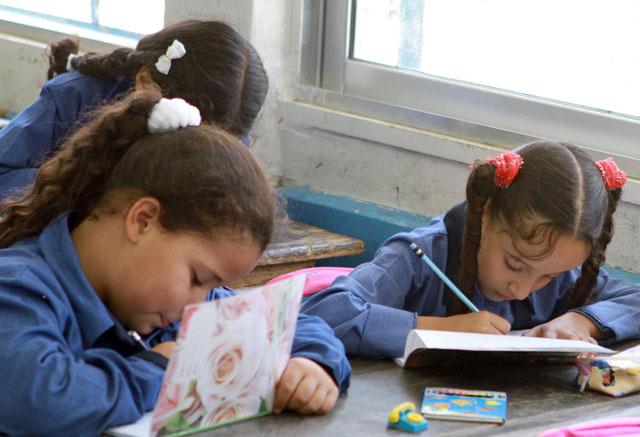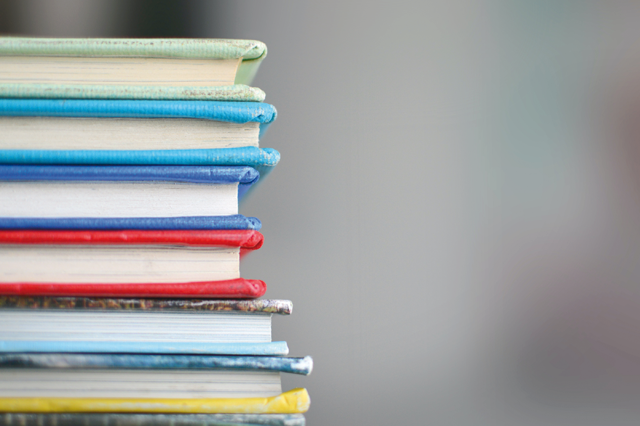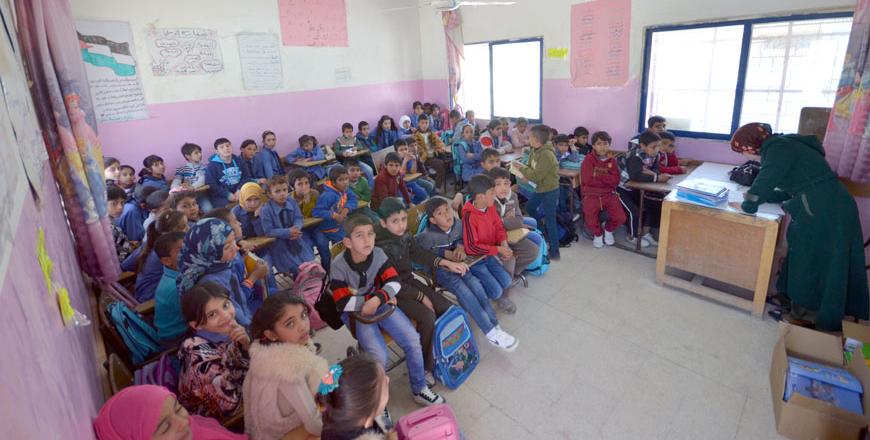You are here
‘Poverty, trauma and early marriage affecting academic performance of Syrian refugee students’
By Sawsan Tabazah - Jan 04,2017 - Last updated at Jan 04,2017

The number of Syrian students at public schools is estimated at around 165,000, according to the Education Ministry (File photo)
AMMAN — Educators working in several public schools around the Kingdom say many Syrian refugee students have been performing poorly in school due to “psychological, cultural and financial pressures”.
An educational counsellor in one of Amman’s public schools said psychological issues account for half of the problems.
Asking not to be named, the counsellor told The Jordan Times in a recent interview that some students came to Amman with their families from refugee camps, and many of these students have personally witnessed traumatic events and extreme violence.
“If I were to transfer my child from one school to another,
he/she would need time to acclimate to the new environment, classmates, and teachers and he/she might have lower performance and participation,” the counsellor explained.
“But what if a student were forced to leave
his/her country, friends, relatives and school, and walk days or maybe even weeks to reach the border, in poverty? How would that affect his/her performance and participation in school?”
The number of Syrian students at public schools is estimated at around 165,000, according to the Education Ministry.
Um Khaled, a Syrian mother of four students in Zaatari camp schools, said her daughters, especially those in secondary school, suffer from memories of the war, and that this has badly affected their academic performance.
“They are trying to forget, but they cannot forget what they have seen, even though it was three or four years ago,” Um Khaled told The Jordan Times.
Despite this, she said that she keeps reminding her daughters that they need to move forward with their lives and focus on studying instead.
Mohammad, a General Secondary Education Certificate Examination student from Zaatari camp, around 90km northeast of Amman, said while he is studying, he remembers his relatives and friends, and pre-war Syria.
He said that despite everything he has been through, he tries to put these thoughts at the back of his mind and continue studying.
Mohammad added that more than a year out of education has also negatively affected his performance.
A total of 655,675 Syrians are registered as refugees with the UNHCR in Jordan, but officials estimate that the number of Syrians living in Jordan is over 1.3 million.
Teacher Asmaa Shneikat, from Jerash’s Qafqafa Public School, also attributed the low performance of refugees to extended periods of absence from education.
Israa Gharaibeh, a maths teacher in Irbid’s Hawwarah Public School for Girls, works in the evening shift for Syrian students.
Jordan has opened 200 two-shift schools to receive Syrian students, education officials have said.
Most of the Syrian students in Gharaibeh’s school are from Daraa, on the border with Jordan, she said.
They are from poor, rural families, where girls often marry at a young age and are not encouraged to pursue education, she added.
The teacher said, she was shocked when, at the beginning of the year, she spoke to girls from the ninth grade about their future plans, ambitions, and the importance of education.
One of her students said, “I will marry young, Education is not important.”
The ninth and tenth grades have the lowest number of students, Gharaibeh noted, as many of them have already married. In a school in Irbid, she said, there were only seven Syrian girls in those grades.
Child marriage among Syrians has ballooned from 12 per cent to at least 32 per cent in Jordan since 2011, Human Rights Watch said in a report released last year.
Girls face additional obstacles in education, as parents worry about older girls’ safety on the way to school, the watchdog said.
One head teacher in Amman said that the “desperate financial situations” of many refugee families can seriously affect their children’s ability to focus on their studies.
“Some families are so poor,” the head teacher said, that they can “barely afford bread” and other basic necessities.
Related Articles
AMMAN — Ensuring that the inclusive education programme covers all grades requires concerted efforts from all: Teachers, parents and society
AMMAN (UNICEF) — With a sense of purpose and responsibility, Naifeh Louzi, the principal of Saied Ala’a Eddin public school in Abu Nusair ha
AMMAN/MAFRAQ – For the past five years, Nour Shurafat, a Jordanian teacher, has faced a great difficulty in taking control of her classrooms



















